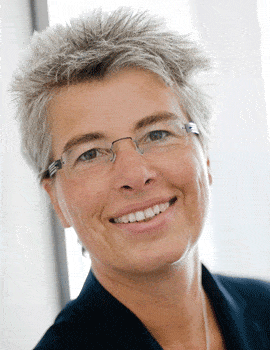How would you define your firm’s culture? How important is that culture to you?
Every individual in our firm trainees, assistants, associates, and partners – shows a high degree of responsibility and independence; we define management as a coordination and service point for our partners; our leadership works bottom up instead of top down; we pursue long-term strategies versus quick results; and we cultivate cooperation, not internal competition. This is based on a balanced allocation of profits which recognises special achievements while focusing on the collective successes.
What’s the main change you’ve made in the firm that will benefit clients?
Massive internationalisation of our firm; the building of an intensively maintained and excellent global network of best friends. We attend to our clients’ international projects in cooperation with our local colleagues instead of simply delegating them. Therefore, our clients can profit from a steady flow of information from one source.
Our associates enjoy the international cooperation which is more first-hand than in other international firms which delegate mandates to local offices. In addition, we maintain personal relationships with our international partner firms by organising joint meetings and events. Our international partners treat us and our clients as their customers and, therefore, like ‘kings’.
Even larger law departments profit from this excellent network, in the event that they require assistance in jurisdictions which they do not usually deal with, such as Paraguay, Pakistan, or North Africa.
In addition, we pay special attention to digitalisation identifying and utilising the adequate IT products to simplify our work, e.g. Meistertask for project management, Contract Companion for the improvement of contracts, data management systems, and, after many years we are currently in the midst of launching a new firm management system.
What are the biggest challenges facing firms of your size in Germany?
War for talent, internationalisation, and the increasing significance of tax implications.
What do you do differently from your peers in the market?
Our form of leadership, with its high degree of individual responsibility and independency, is unusual. This makes us interesting for all kinds of individuals on every work level with an entrepreneurial character.
What do you think are the top three things most clients want and why?
Responsiveness; clear, pragmatic recommendations based on diligent analysis (versus lengthy reports with endless disclaimers); an international network; and a business focus. Clients like it when you think along with them and when you have the entrepreneurial consequences of all legal decisions in mind.
Is technology changing the way you interact with your clients, and the services you can provide them?
Yes, communication is quicker. Cooperation is no longer dependent on the individual’s physical location. Location is becoming increasingly irrelevant. Our benefit from that is we live and work in the nice, liveable city of Freiburg and are nevertheless able to assist our clients worldwide.
What have you found is the best way to retain talent both at partner and associate levels?
Our form of leadership: responsibility and independence at an early stage, realised through internal coaching of associates by our partners, flexible working hours and places (all kinds of part-time models, home-office), international work, and the possibility of secondments all over the world. Also, a balanced profit allocation which adds to a comfortable work atmosphere while at the same time leaving room for appropriate compensation for partners who are especially successful.
Since becoming managing partner what’s surprised you most about running a firm?
Leadership. Lawyers can develop best if they enjoy a certain freedom. This has been our philosophy for quite a while (which was one of the reasons why we broke away from Graf von Westphalen in 2010). In the meantime, the idea of self-responsible team organisation and the reduction of hierarchies has reached many (conventional) businesses as well.
What has been your greatest achievement?
The successful internationalisation of our firm and the corresponding reputation in the internationally orientated upper Mittelstand (SMEs). Our firm culture of cooperation versus competition and the significant increase in profit and business volume which we were able to achieve since the formation of FGvW in 2010.
